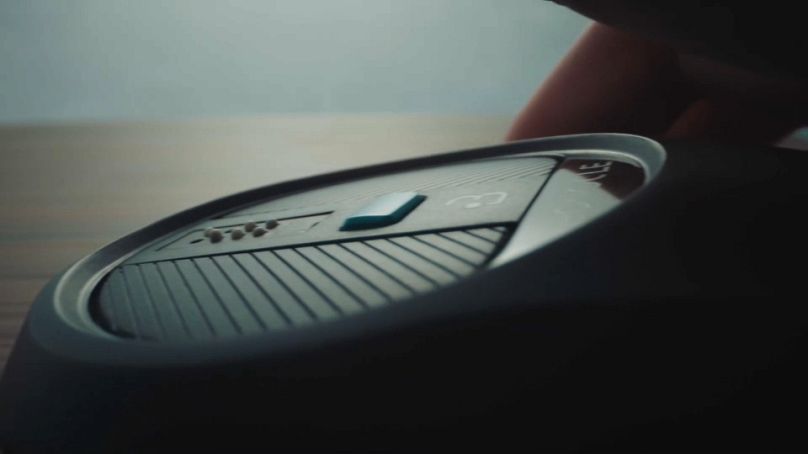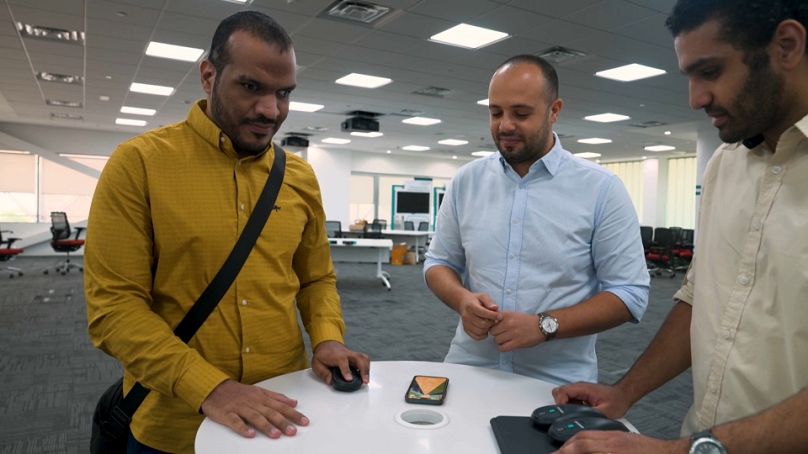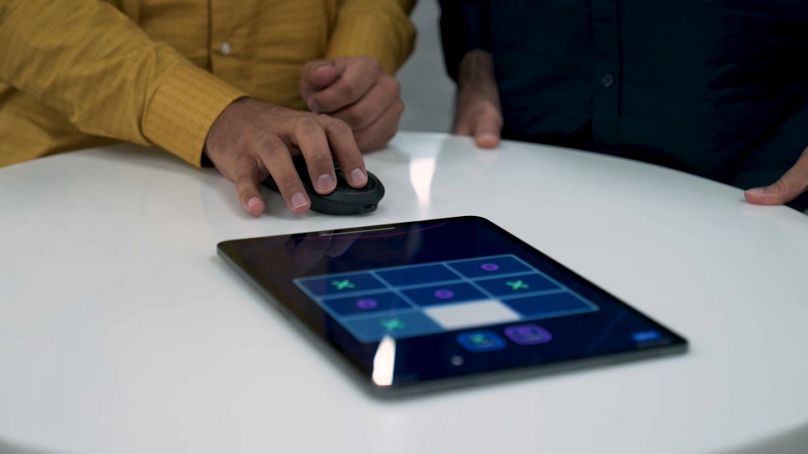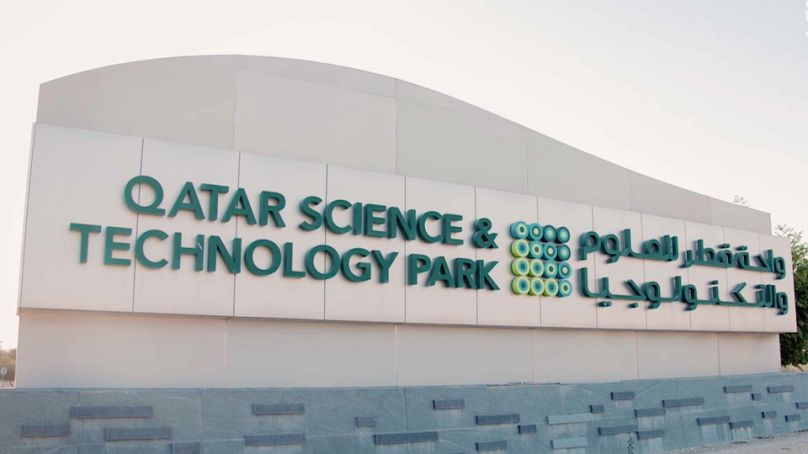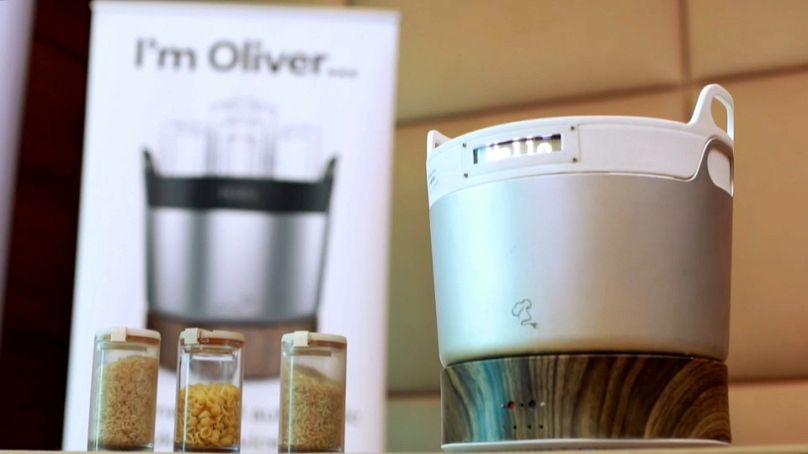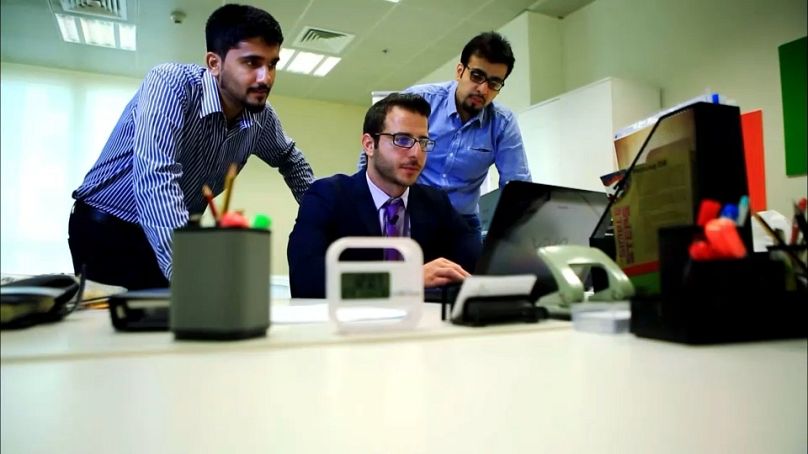From braille entertainment platforms to artificially intelligent cooking contraptions, Qatar is no stranger to fostering innovations and start-ups though hubs or edutainment. Find out more with Qatar365
Accessibility is an important factor when it comes to organising any big event - and the World Cup is no different. Here in Qatar, one local start-up’s ensuring that digital content is being made readily available for visually impaired fans. Qatar365 met the team at Bonocle to learn more.
 ADVERTISEMENT
ADVERTISEMENT
 ADVERTISEMENT
ADVERTISEMENT
Bringing Braille into the 21st century
Based inside the Qatar Science & Technology Park, Bonocle is the brainchild of two engineering students, who developed the braille entertainment platform by chance.
Abdelrazak Aly, one of the co-founders, broke his hand in a car accident and sought help from his university's Special Needs Centre in order to keep up with the demands of his degree.
"That’s where I got to interact with the blind community more. I became curious, how did they use technology? How do they access the study materials? I went through similar struggles they went through every day, from getting access to the content to struggling to getting some volunteers to write it in an accessible format before even studying," says Abdelrazak Aly, Co-founder, Bonocle
Bonocle is a small hand-held device which contains a fountain of possibilities. Designed with a "braille cell", 3 buttons and different haptics, the gadget's helps visually impaired people read, write, count, take measurements or even play games.
The final design was selected after testing several different handheld devices, including styluses or gloves.
Using technology to bridge the gaps
The creative team behind Bonocle says that the device was born from a need to modernise braille technology which was either very expensive, bulky or unreliable, and consequently widened the divide between the Blind community and their sighted peers, until now.
During his recovery, Aly and his fellow founder, Ramy Soliman were shocked by the divide between the sighted and Blind community. Soliman says that’s something that shouldn’t exist in the 21st Century.
"It was always a shock to us that the visually impaired were always segregated. They had their separate schools, their separate institutions and even the workplaces, they would usually be segregated from the rest of the community," he says.
Both men hope their new device could help integrate people with different levels of visual impairment into mainstream society, schools, workplaces or even game centres. They started by fielding their device locally and include blind players within the Qatari gaming community.
Ikrami Ahmed is a Braille instructor who uses the Bonocle device. He says it felt great to play with other gamers.
"It’s the true meaning of integration to take part in the mainstream events and to actually engaging with real gamers. So yes, it’s definitely fun and I’m truly looking forward to seeing what more can be done with this tiny little device," he remarks.
Despite the challenges the company has faced, such as trying to manufacture a new product during a pandemic, the team received a massive sign of confidence after been tasked to convert digital content into braille during the upcoming World Cup.
Ahmed feels that Bonocle has the potential to become an important part in a blind person’s daily routine. He also believes the accessibility gap will continue to close as technological advancements continue to help level the playing field.
Qatar and Entrepreneurship
Qatar is no stranger to recognising potential and talent. In order to foster and promote innovation, the country opened the Qatar Science and Technology Park, a hub for start-ups and tech ventures.
The Qatar365 team met with Hayfa al Abdulla, Innovation Director at the QSTP to find out what makes the park such a key platform.
"For us, it's important to have the space to build a community, but it's more important to bring in the right people and make the right connections that start-ups need, whether it's connecting them to investors, to the right mentors, or even to the market opportunities out there," she explains.
QTSP supports entrepreneurs at various stages, from cultivating ideas, educating young start-ups and helping them build their business models to funding, mentorship and incubation.
As someone who has been working in the innovation space, Hayfa Al Abdulla believes that the key to being a successful entrepreneur would be to focus on building the right team to develop the idea.
"You have to really make sure that you have the capacity to lead a tech start-up and that you bring together with you the right people. It's a tough journey. And if you have people with you, I would say that you are more likely to succeed," she adds.
When Edutainment fosters innovation
And that’s not all. QSTP is also the setting for Qatar Foundation’s long-running reality TV edutainment show, "Stars of Science», a 12-week competition which sees Arab inventors compete to be crowned top innovator. But what happens to the entrepreneurs after their season ends? Let's find out.
Khalid Aboujassoum
Khalid Aboujassoum didn’t just compete on Stars of Science, he went home with the 2012 edition trophy.
His product? An autonomous cooking robot named Oliver. Khalid originated the idea even before going on the show, when he came up with the concept of using Artificial Intelligence to create perfectly cooked home-style recipes.
"In 2011/2012, we were just starting and grass rooting. At the time there was only one digital incubation centre in Qatar. So, definitely, the ecosystem has grown. For me, I was thinking of building a global company. It is a global challenge. It's a global need that we need to really address when it comes to having high quality food accessible through technology and robotics."
Now Khalid is on a mission to bring his idea to as many kitchens as possible. That includes personal households but also commercial settings. Eventually, the plan would be to have an Oliver fleet of automated chefs for restaurants, catering and even offshore rigs and boats.
Majed Lababidi
Majed Lababidi competed on Stars of Science’s third season by developing a device providing free WiFi. After Stars of Science, he got involved in the development of Droobi Health, an app specializing in health prevention and management. Now, he is the CEO of Rawi Al Kotob, an Arabic audio content provider, Majed has managed a number of businesses. For him, being an entrepreneur is all about mindset.
More than a decade after appearing on the program, Majed now passes on some of the things he’s learned to new contestants. He enjoys mentoring, seeing the passion and hearing the exicting new ideas.
"Stars of Science" aims to drive interest in science and innovation. But, more than that, the show also fosters an entrepreneurial ecosystem in the region, one that extends long beyond the 12 weeks of the competition.












